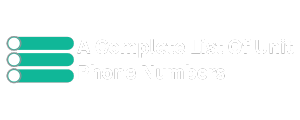you’re called on to manage a variety of tasks. Due to the importance of content, one of those tasks is writing. You have content to create. This can be a scary and potentially overwhelming concept. Many people fear writing or put it off because they don’t consider themselves to be writers. Good news! You don’t have to be a ‘writer’ to write good content for your website. There’s a difference between content published in newspapers and some magazines and content published on most websites. The content on your website doesn’t need to appeal to a broad audience. It also doesn’t need to be on a broad topic. Quite the opposite, actually. Your content will be quite specific. A quick story about when I was in English Comp 101 in college. I barely got by in that class and I was convinced that I could not write. PERIOD. I persevered and pass the course only to have to take English Comp 102. I certainly was not looking forward to that class. Fortunately for me, I had a wonderful instructor that let me know that ‘formal’ writing was not the only way to write. Writing in a more conversational mode is acceptable in many cases. I think if it was not for her, I am not sure where I would be on the web since a lot of what I do is writing! Back to the important stuff.. Your content will be quite specific. For example, it could be “Ten tips to bake better chocolate chip cookies.” It provides value to a very specific target audience. And if you have a website about chocolate chip cookies or baking, then you can write this article without thinking much about it. You know it. The information is already inside of you. Web content is also more conversational. Content is written to feel personal – as if you’re speaking to your audience. You’ll use words like: You Your You’ll You’re And sometimes if you’re writing a blog post you’ll use ‘I’, ‘Me’ and ‘We’ These are not words you’ll find in any piece of journalism unless they’re in quotes. Newspapers and magazines are generally more formal. They use third person perspective. Additionally, web content is formatted for easy reading. You’ll use bullet points, numbers and headings and subheadings to break up your content into bite-sized pieces. So what does all this mean if you’re not a ‘writer’? It means that writing content for your website is pretty straightforward. You: Write what you know and what your audience will benefit from Write conversationally Write so it’s easy to read online The simplest method to use when you’re writing your online content is to spend a few minutes creating the structure for your article. Write a rough headline and subheadings. Then fill in the content. Write it as if you’re writing a letter to a friend. Don’t worry about grammar and spelling on the first draft. You can go back and edit for clarity later. Once you have your thoughts down on paper, polish. Add your keywords in to opti

